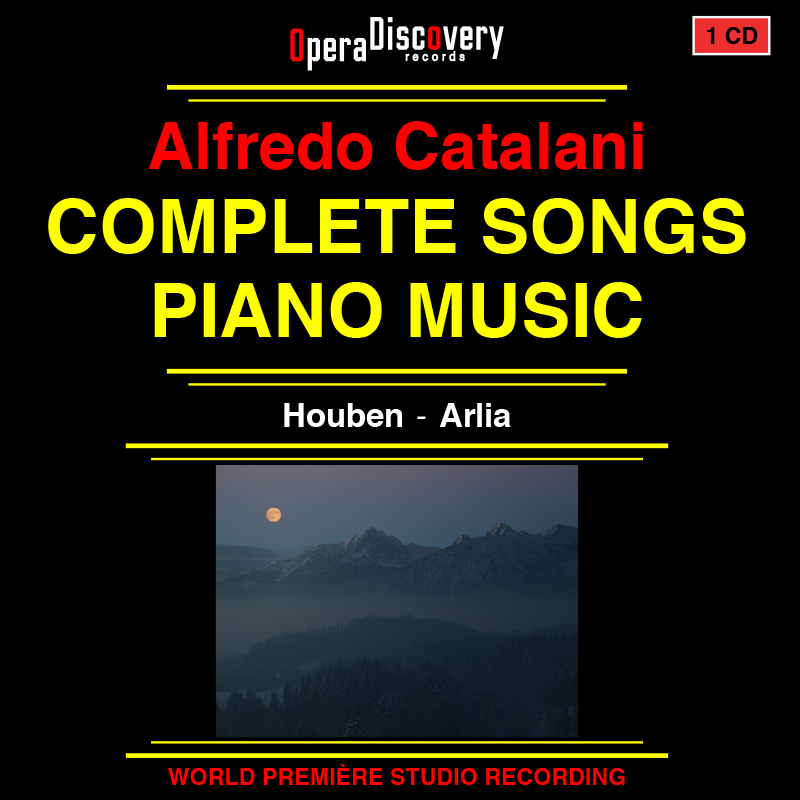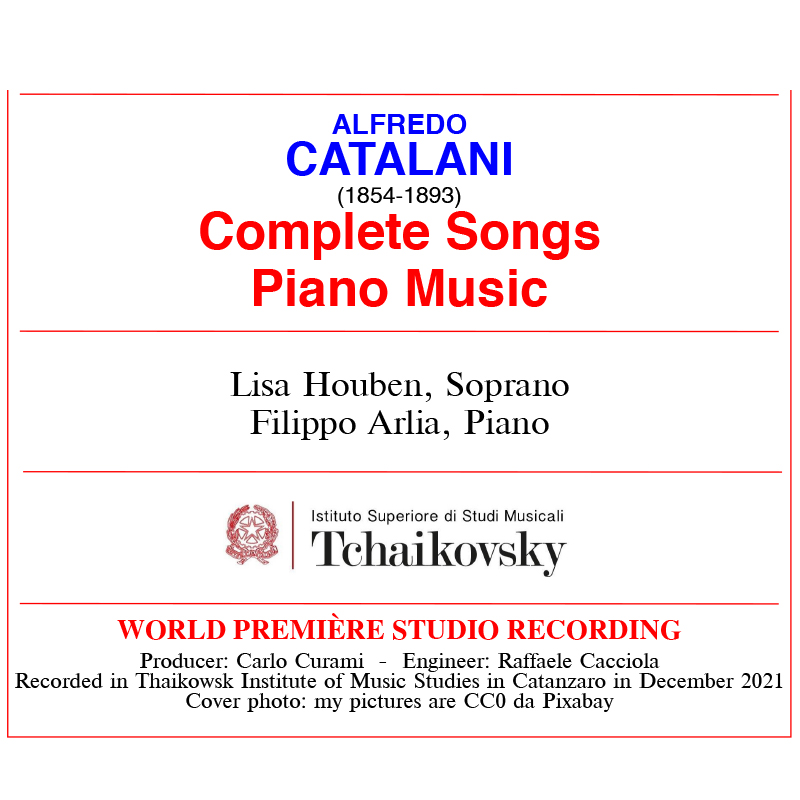Alfredo Catalani
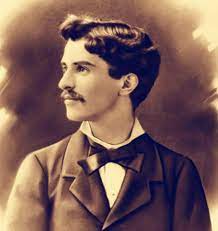
Alfredo Catalani
Alfredo Catalani was born in Lucca on 19 June, 1854 and followed his musical vocation against his father’s wishes. He studied at the Istituto Musicale Pacini in Lucca, in Paris with François-Emmanuel-Joseph Bazin and at the Milan Conservatory, where his teachers include Antonio Bazzini. He wrote a number of operas: La falce (1875), Elda (1880), Dejanice (1883), Edmea (1886), Loreley (1890) and La Wally (1892). He composed also sacred music (Messa in mi minore per soli, coro e orchestra, 1872), symphonic music (Ero e Leandro, 1885) and many chamber music for voices and instruments. Despite the growing influence of the verismo style of opera during the 1880s and early 1890s, Catalani chose to compose in a more traditional manner, which had traces of German music in it. Alfredo Catalani was one of Arturo Toscanini’s favorite musicians, he died in Milano on 7 August , 1893.
Complete Songs
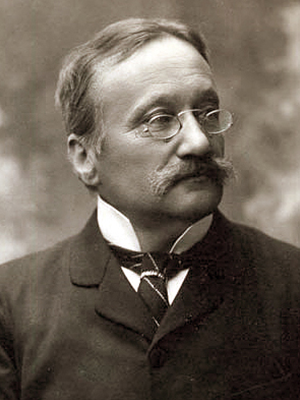
Enrico Panzacchi
Catalani’s production of songs began in 1870 with “Romanza”, to an anonymous text and dedicated to his mother. “La viola”, again with an anonymous text and dedicated to Elena Matteucci, dates from the same year. Four songs date back to 1870, which have unfortunately been lost.
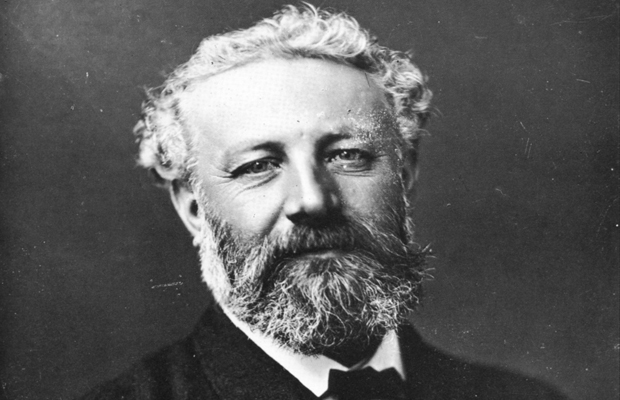 Jules Verne
Jules Verne
Two years later Catalani composed an “Ave Maria” dedicated to Signora Rosina Nuccorini, an amateur singer. In 1874, the period immediately following Catalani’s stay in Paris, two other melodies were composed: “Ad una stella” with an anonymous text, probably intended as a composition essay, and “Fior di collina“, a stornello written by Marchese Corrado Paveli.
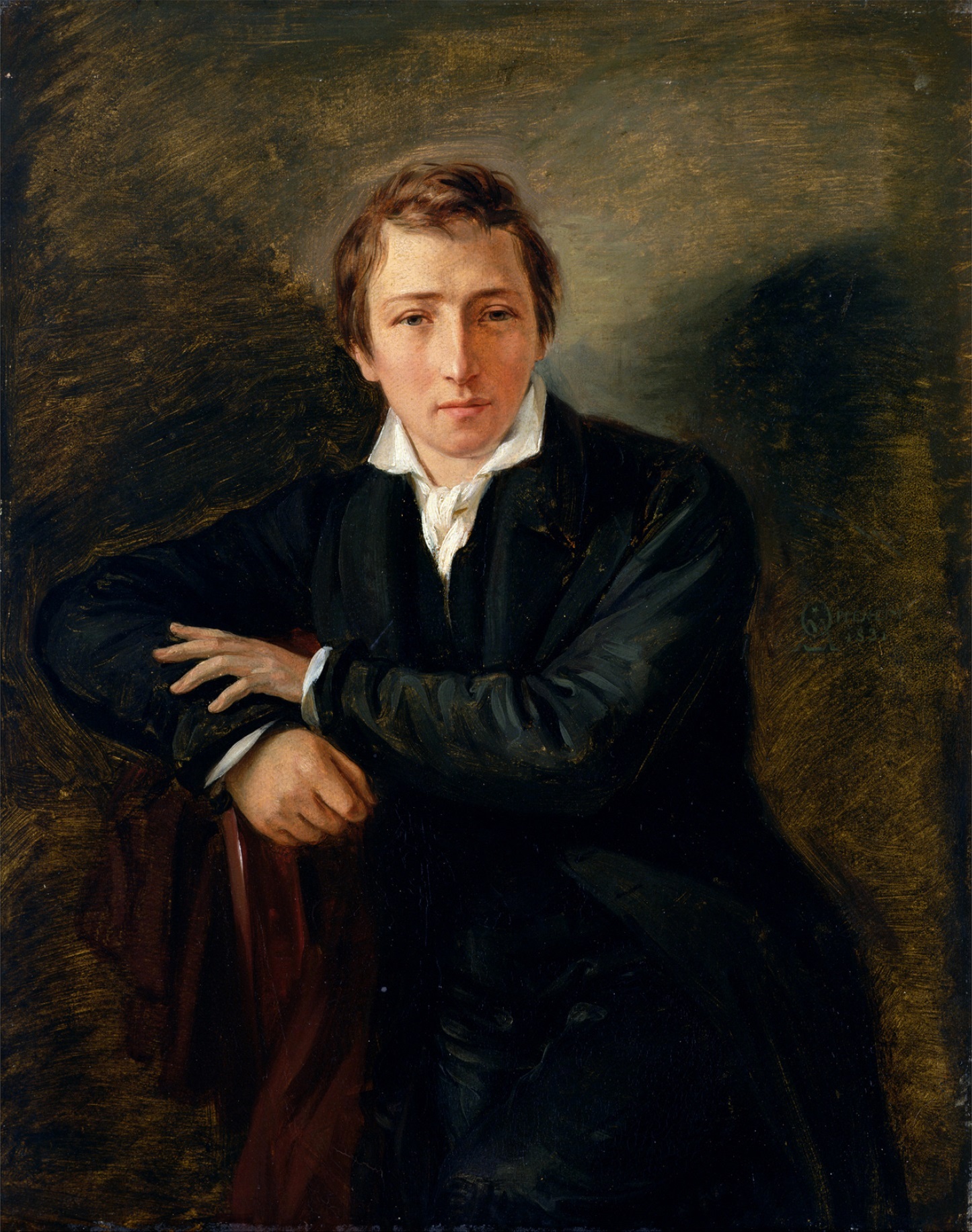
Heinrich Heine
The following year he wrote the unfinished lyric “O rea Gomorra, o Sodoma perversa“, written as a licence essay for the Milan Conservatory. “Sognai“, to a text by Ugo Bassani, an eclectic character who was always torn between music and poetry, was dedicated to Marchese Camillo Pizzardi in 1877.

Julian Gayarre
The following three romances date from 1878. The most evocative of the three is certainly “Chanson Groënlandaise” on a text by Jules Verne and dedicated to one of the most famous tenors of the 19th century, Julian Gayarre.
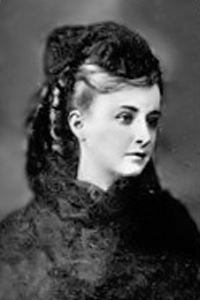
Contessa Lara
Catalani utilized some of the musical material in “Ebben ne andrò lontana” in La Wally.
“L’odalisque” on verses by Thomas Moore translated by Sabine-Casimire-Amable Tastu and “In riva al mare” on a poem by Enrico Panzacchi complete this group of romances. “Il m’aimat tant” on an anonymous text and “Le gondolier” on a text by Casimir Delavigne date back to 1880, while we have to wait until 1892 to discover the jewel that is “La pescatrice” on a poem by Heinrich Heine, while his production of songs ends in 1895 with “Senza baci” on a text by Contessa Lara.
Piano music
Catalani’s piano production covers a period of about twenty years between 1870 and 1890. Nevertheless, most of the pieces date from the beginning of his career. “Le rouet”, “Scherzo”, “Rêverie”, “Aspirazione” and “Contemplazione” date from 1878-1879. “In sogno” dedicated to M.me Vera de Lénine dates from 1880 and the last pieces, “Un organetto suona per la via“, “Canto di primavera” and “Sans souci!” all date from 1877-1878 and conclude the composer’s relationship with the piano. These are pieces in which the influence of Schumann and even more so of Chopin is even more evident than in his earlier compositions.

